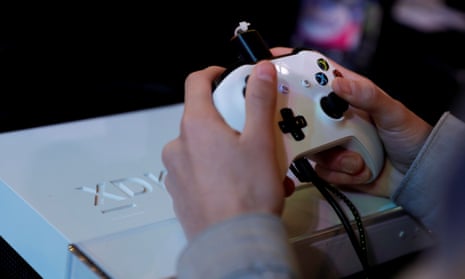
I was not prepared for what we came across when treating gaming disorders
Most of our patients are young, and the desperation of families trying to address the disruption to their child’s life is extreme
The National Centre for Gaming Disorders, the first NHS clinic designated to treat gaming disorder, saw its first patient in early 2020 but I had been aware of the need for this type of treatment for several years prior to its opening.
The clinic was part of the much-lauded 2019 NHS long-term plan, which has only recently further expanded its network of gambling treatment clinics to a total of 15, reaching its planned national coverage a year ahead of plan.
When gaming was not a disorder treated by the NHS, I would frequently, as director of the National Problem Gambling Clinic, be contacted by relatives of young gamers who were desperate for help. I increasingly began to feel that the young people who were spending money on gaming products in a compulsive and destructive manner also needed our help.
We have now been operating for just over three years and have had about 800 referrals to a clinic that was expected to see no more than 50 patients a year and was funded accordingly by the NHS.
The desperation of the families trying to address the disruption that gaming harms have had on their children is extreme. I was not prepared for what we came across, with violence within the home and refusal to go to school being prominent.
The pattern of harm often starts with a change of circumstance: it may be a move between schools or a change of home and therefore a geographical distancing from real-life friends. It may be a fragmentation of the family or a significant issue with peers, such as bullying, that leads the young person to seek peers online.
Most of our patients are young and male, often around the ages of 16 or 17. They may have been high achievers in academic pursuits or sports. Then something happens to disrupt this successful journey.
Gradually, the child’s online life becomes a support structure, something to make real life easier to bear. The pull away from school friends and family members can be extreme and we have met many who no longer eat meals with parents nor pursue activities they used to enjoy together.
The cycle of separation leads to isolation, arguments at home and eventually low mood and anger as parental intervention often starts with removal of devices because the young people are unable to meet the home rules around gaming hours.
I have met parents whose young children ran away from home in the middle of the night to find wifi on the steps of random homes when their own internet connection was switched off by parents.
I have met children who felt they would rather be dead than not game and said so to their parents. Doors, objects, possessions. Things get broken in fits of rage. Sometimes people get hurt.
Possibly the most surprising aspect has been the amount of involvement from the police to these homes after a domestic violence issue.
The young age of the children makes it hard to hear these stories.
Another surprise has been the grateful and repeated accounts from parents of teachers, head teachers and support workers trying to help these young gamers return to their past happy selves. To return to school. To reconnect with their peers.
What has been difficult for us has been seeing how hard it has been for some of these families to access young people’s NHS mental health help in time when needed.
Low mood, suicidal ideation and intent in a crisis and anxiety are present in our patients.
When I founded the clinic I thought all the children may be playing a small selection of games, but this is not the case. At the last count about 60 different games were being played.
By no means do all our patients spend money on gaming; many don’t and would find the expenditure to progress a game an insult to their abilities in relation to mastering it.
Competition and ability are key in this group.
Almost no one has presented with both a gaming disorder and a gambling disorder. There is a fundamental difference in the value people place on monetary rewards between our gambling patients and our young gamers. This, we know, may be due to age alone, and only good longitudinal studies will be able to tell us what exactly happens to a population of gamers in treatment 10 years later. How many will have developed a gambling disorder? We know from research that the number will be higher than the general population due to shared neurobiological vulnerabilities being triggered by gambling cues in the environment, such as gambling advertising.
The gaming clinic is now no longer a clinic just for young people, as it was when we started, as many older gamers in their 20s and 30s have now heard of our treatment centre and are referring themselves.
Women are now increasingly coming forward for help. The oldest patient we have is a woman in her 70s.
In adults, gaming disorder can lead to the ending of relationships and the loss of occupational pursuits as well as debt if spending is part of their activity online.
Loot boxes feature in about a third of our gamers. To spend money, these children need to borrow money from parents or use monetary gifts received for birthdays and Christmas. The need for money is at the root of some of the domestic violence we see.
When no money is available, the most impulsive of patients have stolen it, by spending on their parents’ bank cards.
The most important lesson we have learned is that early intervention, by seeking help before children retreat to their bedrooms and refuse to attend school, is vital to the wellbeing of the family.
To end on a good note, gambling disorder is an illness and it can be treated successfully using cognitive behavioural therapy. If you know someone who is struggling please mention the National Centre for Gaming Disorders. We, the NHS, are here to help.
